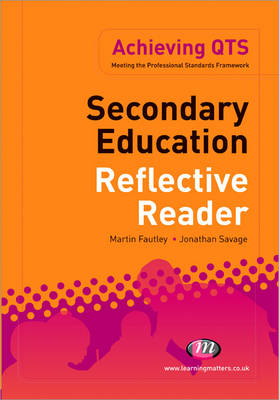Achieving QTS
2 total works
Assessment for Learning and Teaching in Secondary Schools
by Martin Fautley and Jonathan Savage
Published 1 January 2008
Assessment is central to teaching and learning, yet is one of the most difficult areas of professional practice. This book guides trainee secondary teachers through its complexities and provides practical strategies, exemplified by case studies. It examines issues such as diagnosing problems, sharing learning objectives, assessment as a tool for motivation, effective planning, using evidence to adapt teaching, peer and self assessment, learning through dialogue and understanding formative assessment. Targeted specifically at trainees, this text links explicitly to the new QTS Standards, and its tasks provide opportunities for reflection and for practising the range of skills involved in assessing pupils.
This reflective reader looks at key themes and topical debates in secondary education using extracts and writings to exemplify different perspectives. It examines themes such as establishing teaching identity, approaches to teaching and learning and classroom practice. It gives advice on embedding assessment of pupil progress into teaching and how to use creativity as a way of teaching and learning. This text provides a model approach to the integration of theory and practice through learning from the analysis of research literature and applying this learning to the role of classroom teacher.

